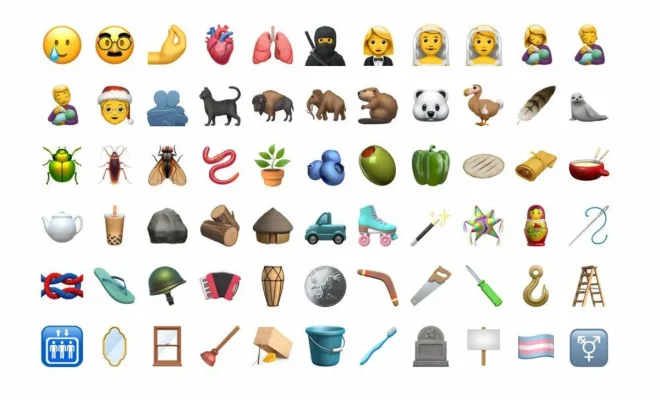Google’s AI Search Could Mean Radical Changes for Your Internet Experience

Google has long been synonymous with internet search, revolutionizing the way we find information online. Now, the tech giant is taking it a step further with the integration of artificial intelligence (AI) into its search algorithms. This development promises to bring radical changes to our internet experience, making searches more personalized, efficient, and intuitive than ever before.
Personalized Results Tailored Just for You
With AI-powered search capabilities, Google aims to provide users with highly personalized results based on their individual preferences and interests. By analyzing user behavior patterns and previous interactions, the AI algorithms can better understand your intent and deliver more relevant content.
For instance, if you frequently search for recipes or follow cooking-related websites, Google’s AI will learn about your culinary interests and prioritize food-related results in future searches. This personalization ensures that you receive targeted information that aligns with your specific needs and passions.
Enhanced Natural Language Understanding
One of the most exciting aspects of integrating AI into search is its ability to comprehend natural language queries more accurately. Instead of relying solely on keyword matching or exact phrases, Google’s advanced machine learning models can interpret context and understand conversational nuances.
This means you can ask questions using everyday language rather than having to structure your queries according to rigid rules or keywords. The AI-driven search engine will grasp your intent even when faced with ambiguous or complex inquiries.
Predictive Suggestions for Effortless Exploration
AI technology also empowers Google’s search engine to predict what users are looking for before they finish typing their query. Through real-time analysis of popular trends and user browsing history, predictive suggestions appear as you type – saving time by offering instant options related to what you likely intend to inquire about.
These intelligent suggestions facilitate effortless exploration by providing quick access to relevant topics without fully formulating a complete question yourself. It streamlines the searching process significantly while ensuring that you stay informed about the latest trends and popular topics of interest.
Visual Search: A New Way to Discover
With AI, Google is moving beyond text-based searches by introducing visual search capabilities. By leveraging computer vision technology, users can now take a photo or upload an image to find related content or information.
Imagine being able to snap a picture of an unknown object or landmark while traveling and instantly receiving details about it. With AI-driven visual search, this becomes a reality. The integration of visuals into search results adds a new layer of exploration and convenience for users who prefer more visually oriented browsing experiences.
Ethical Considerations and Transparency
While embracing the potential benefits of AI in search, it’s crucial to address ethical considerations surrounding user privacy and algorithmic biases. Google understands these concerns and emphasizes transparency in its approach.
The company aims to provide clear explanations regarding how AI is used in delivering personalized results while ensuring data security and respecting user privacy preferences. Additionally, continuous monitoring is implemented to identify any potential biases within the algorithms so that fair representation remains paramount.
Conclusion
Google’s integration of artificial intelligence into its search engine represents a significant leap forward in enhancing our online experience. Through personalization, natural language understanding, predictive suggestions, visual search capabilities, and ethical considerations – our
internet journeys are set on course towards increased efficiency, relevance, convenience, and inclusivity.
As we look ahead with anticipation for what lies beyond the horizon of AI-powered searching technologies like Google’s, one thing remains certain: our digital explorations will continue evolving alongside groundbreaking advancements driven by cutting-edge artificial intelligence systems.






